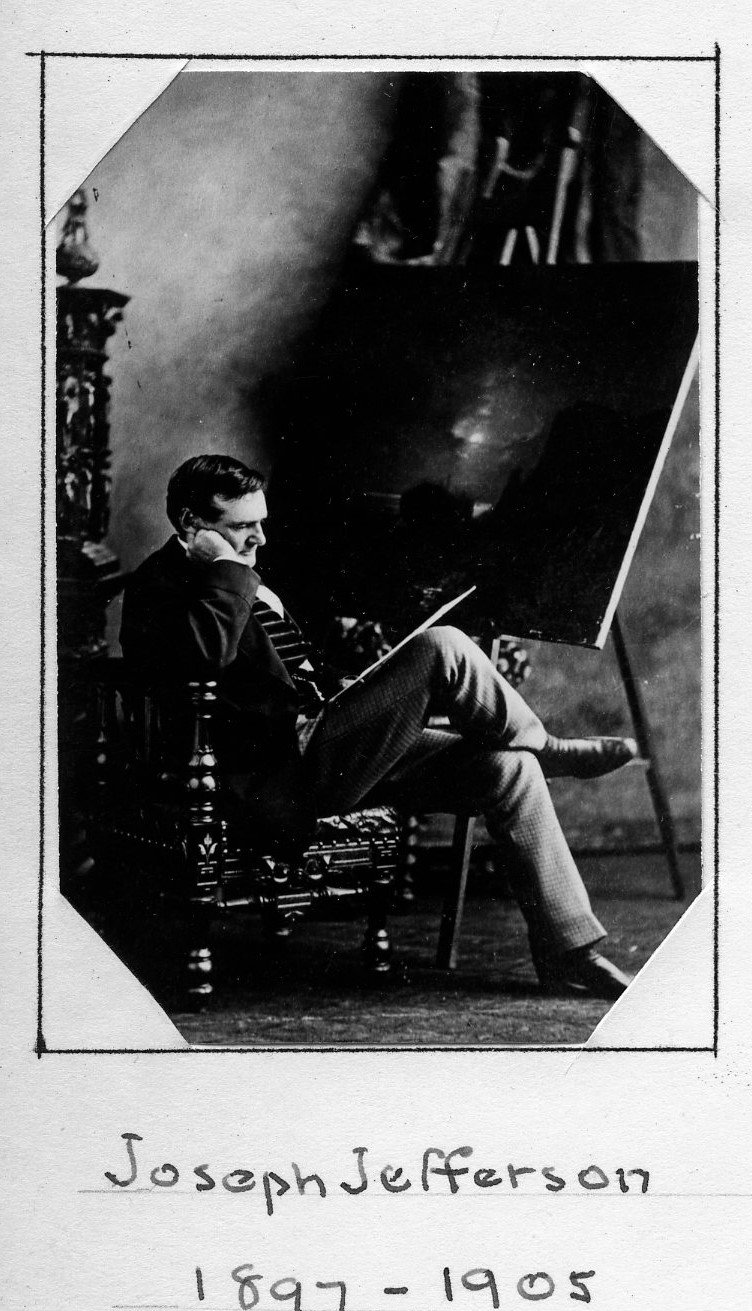Actor
Centurion, 1897–1905
Born 20 February 1829 in Philadelphia, Pennsylvania
Died 23 April 1905 in Palm Beach, Florida
Buried Bay View Cemetery , Sandwich, Massachusetts
, Sandwich, Massachusetts
Proposed by James W. Alexander and Henry Codman Potter
Elected 3 April 1897 at age sixty-eight
Seconder of:
Century Memorial
Many of those present to-night will recall a “talk” about acting by Joseph Jefferson at The Century rooms some few years since, and some of us will especially recall how, in rendering a few lines from the grave-digger’s scene in Hamlet his voice wholly lost the slight but marked peculiarity, almost a lisp, noticeable in conversation. The incident told much of the secret of the artist’s success and of the character of the man. It revealed his curious mastery of himself and the firm fidelity with which he compelled the last fibre of his gifts to serve his highly conceived, patiently evolved ideal. His professional success is conceded by those entitled to an opinion to have been substantially unequalled in its kind, and his character—the way in social intercourse he played the most charming of all the rôles he essayed, and revealed to those whose privilege it was to witness the rendition his winning, tender, manly, delightful self—this is the cherished inheritance of our Association. Mr. Jefferson was of a race of actors, of the fourth generation on his father’s side, of the third on the side of his mother. He was not yet three years old when in 1831 he was carried on the stage as “Cora’s” babe in Pizarro. He passed his youth amid the vicissitudes of theatrical life in a new country, and by the time he made his first striking success in Rip Van Winkle in London, in 1865, he had acted in over a hundred parts, all over our country from the Atlantic to the then almost savage Pacific Slope, and in Australia. It was hard training, but, thanks to the old stock company system and to his own unflagging self-discipline, it was sound and fruitful. If, after this striking success he may be said to have become “Rip Van Winkle,” permitting himself only occasional variants as “Caleb Plummer,” “Pangloss,” “Bob Acres,” and remained “Rip” for two-score years, it must be remembered what rich and subtle development he gave to a part not intrinsically fine or even deeply interesting, with what consummate art he wrought his presentation of it, how magically he informed it with a spirit wholly his own, and how lastingly he endowed it with irresistible charm. Charm, indeed, is the word on the lips of all who speak of him, from the most to the least critical, and in “Rip” it was the fruit of the union of rare intelligence of singular gifts, and of a temperament at once delicate and vigorous. Nor must it be forgotten that this marvellous impersonation, the unfailing delight of at least two generations, was never permitted to become a mechanical iteration, but was sustained to the last with the same zeal, the same minute perfection that first won affectionate applause for it, and, in the later years, with even a riper and more mellow pathos. The extraordinary prosperity attained by Mr. Jefferson enabled him to pass the leisure days of his busy life amid congenial surroundings and to indulge the refined tastes natural to him. Amid these favoring conditions he was the most attractive of companions, and his death was followed by many tributes of warm and admiring affection. Actor, writer, painter, he had triple claims upon the memory of The Century, all reinforced by his unusual social equipment and by the purity and simplicity of his character.
Edward Cary
1906 Century Association Yearbook

